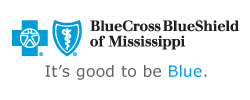Breathe Easier With Healthy Lungs
Across Mississippi, the air is clearing. Hospitals, businesses and even entire towns are choosing to be tobacco-free. And, with the support of Blue Cross & Blue Shield of Mississippi’s “be smoke-free” Program, individuals are getting a new start to their lives as non-tobacco users. Mississippi is becoming a healthier place to live and to breathe!
Lung cancer is the leading cause of cancer deaths in the U.S., attributing to one in three cancer deaths. It will kill more people than the next four most common cancers combined, three times as many men as prostate cancer and twice as many women as breast cancer. Lung cancer kills about 437 people every day and about 87 percent of cases are attributed to smoking. With these sobering statistics, it’s a good time to focus on breathing easier and the importance of healthy lungs.
Each November, the Great American Smokeout encourages smokers to quit for 24 hours. Your health improves almost immediately after quitting and continues for years. Here's what you can expect after:
- 20 minutes: Blood pressure drops to the level you had before your last cigarette and the temperature of your hands and feet returns to normal.
- 24 hours: Your chance of a heart attack decreases.
- 1 to 9 months: Coughing, sinus congestion, fatigue and shortness of breath decrease: cilia regain normal function in the lungs, increasing the ability to handle mucus, clean the lungs, and reduce infection.
- 1 year: Chance of having a heart attack is cut in half.
- 5 years: Stroke risk is reduced to that of a non-smoker five to 15 years after quitting.
- 15 years: Risk of coronary heart disease is that of a non-smoker.
The Great American Smokeout is a good way to get started on the road to being tobacco-free, and our “be smoke-free” Program offers you additional support through visits with network providers and counseling, plus medication and/or nicotine replacement therapy. Click here for more details.
There are additional factors that can put you at an increased risk of developing lung disease such as radon exposure, asbestos, some environmental factors and even family history. According to the National Cancer Institute, increased risk has also been associated with a high cholesterol diet and excess alcohol consumption, while a decreased risk is associated with a high fiber diet, high vegetable consumption and vitamin A.
The most effective way to protect your health and lung health is to avoid tobacco use and second hand smoke. Eating a healthy diet along with regular exercise and annual visits with your healthcare provider can help you be healthy, but all your efforts in these areas won’t mean a thing if you use tobacco. For information and resources on lung cancer, being tobacco-free and more, visit the “be tobacco-free” section of our website or the American Cancer Society.




 Women's Health
Women's Health Eat Healthy
Eat Healthy Exercise
Exercise Health & Wellness Articles
Health & Wellness Articles